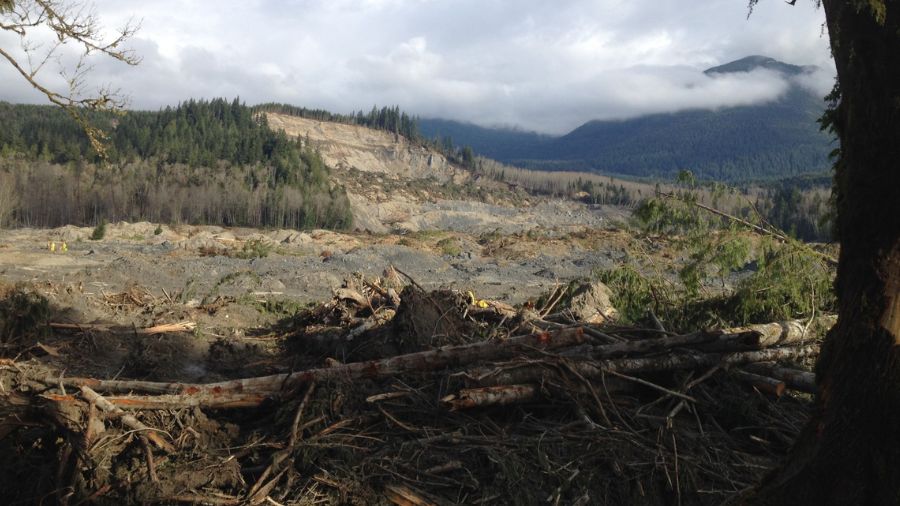SPD: Arresting people is not helping solve the heroin crisis
Jan 12, 2017, 5:50 AM

“It’s really frustrating with how our systems are working and the opportunity that there is in the criminal-justice system to really address some of the underlying root causes of criminal behavior,” Seattle's Public Safety Adviser Scott Lindsay said. Lindsay is running for city attorney. (AP)
(AP)
It’s no secret that Seattle is stuck in the middle of a heroin crisis. That is well known. What Seattle police have come to realize is that arrests are not helping solve the problem.
Related: Safe injection sites proposed for Seattle to address heroin crisis
“You got sons and daughters, mothers and fathers being killed by heroin because they become chemically addicted,” said Sergeant Sean Whitcomb with the Seattle Police Department.
“And the cycle of arrest-and-release does not seem to be working,” he told KIRO Radio’s Ron and Don. “There are alternatives with law enforcement assisted diversion and drug court … The approach we have taken is one that is multifaceted.
“The destruction and the grief and the misery caused by the heroin epidemic can’t be measured and it certainly can’t be counted in arrests,” Whitcomb said.
Seattle heroin crisis
Such “destruction” and “grief” was apparent last weekend when Seattle police responded to a cluster of heroin overdoses in a small area over one Saturday afternoon.
“There was some concern because of the time and proximity of four overdose events,” Whitcomb said. “Three were immediately fatal. We learned on Monday that one individual died at the hospital.”
“What our North Precinct officers saw was this cluster of overdoses — four people within about a square mile,” he said. “That leads any reasonable person to conclude that there might be a problem with the heroin being injected. There might be a purity level or some other issue that created a lethal experience.”
A problem like fentanyl. It has not been confirmed that fentanyl was involved in any of the recent overdoses, but it is suspected. Fentanyl is a synthetic opioid. It is much stronger than heroin and is sometimes mixed in with batches of the drug.
“The problem with fentanyl for people who are using and for first responders is if you get the wrong amount, you are going to die,” Whitcomb said. “It will shut you down. It is that lethal.”
The recent spike in overdoses caused Seattle police to deploy bike officers to contact known addicts in the area and warn them.
“We told them, ‘If you have to use, by all means, call 911 if there is an emergency. Have someone there with you, don’t use alone. And if you aren’t alone, make sure the other person with you isn’t using at the same time for obvious reasons,'” Whitcomb said. “It’s dangerous. And we want people to be aware of those dangers.”
For Whitcomb, it’s a reminder to be thankful officers are now carrying naloxone — a drug designed specifically to remedy overdoses. It has to be used immediately. It’s beneficial for saving a person who has overdosed, or an officer accidentally exposed to an opioid. But naloxone is a solution for a symptom — a fatal symptom — of the heroin crisis.
SPD approach to the heroin crisis
While arresting and releasing addicts isn’t helping solve the problem, Whitcomb said they are interested in arresting certain people.
Seattle’s RV issue is a good example. Whitcomb stressed that police are not interested in RV dwellers, rather people involved with criminal activity who are using RVs. There’s a distinction, he noted. He asks Seattle residents to report suspected criminal activity. That way, an investigation can get started. Investigations take a while, but it’s a big picture approach.
Related: Did SPD get a ‘stand down’ order on RVs?
“We do investigate criminal behavior,” Whitcomb said. “If there are reports of crimes committed by people who might be living in RVs, we want to know about it. We don’t investigate people in RVs. We investigate people in RVs who are committing crimes. If there is information, we want to know about it.”
“I can tell you we have done operations against people dealing drugs out of cars and RVs,” he said. “If you are dealing drugs it doesn’t matter if you are living in a home, a high rise or an RV. We want to know about it so our investigators can take care of it … we want the dealers. When they are distributing large amounts to small-level dealers, we want to work our way up the chain and take down the bigger fish.”













